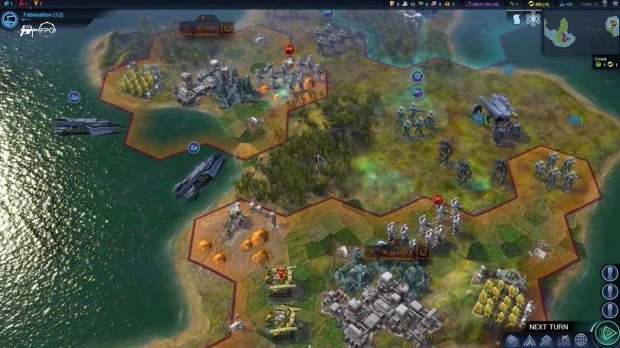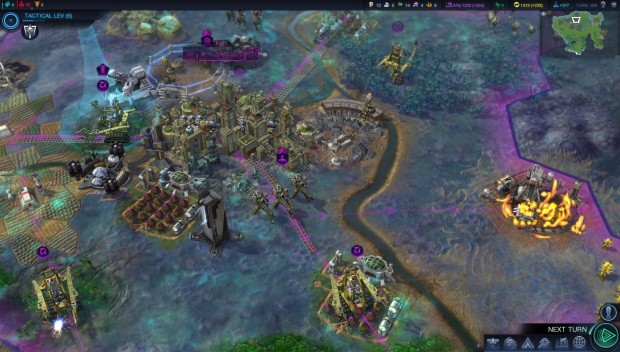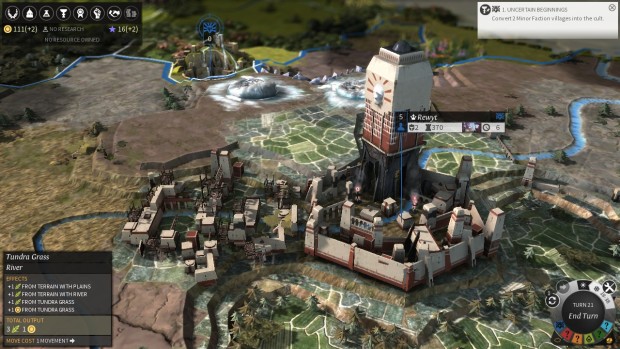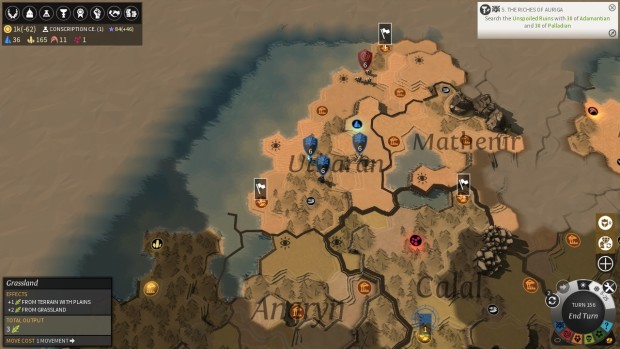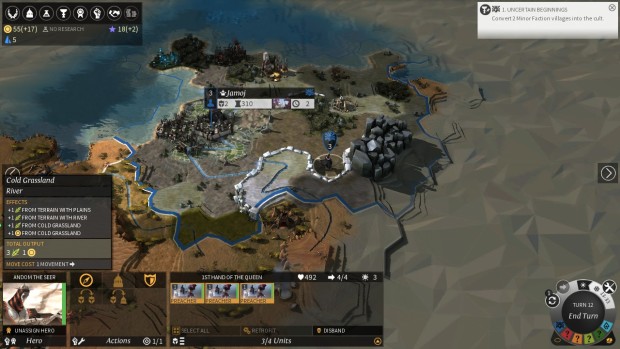Civilization: Beyond Earth was supposed to be the defining strategy game of 2014. The title marched in with all the cache of Sid Meier and a formula well defined and well executed in Civilization V. This game was supposed to be what’s next, a continuation of the Civilization experience after humanity had left this world behind and moved to a new world. And so, the series landed on a new planet, but did so with a resounding thud.
Civilization has always been a game I’ve played obsessively. Yet in Beyond Earth, I found myself souring on each and every playthrough. The game’s opening, long my favorite part of the series, felt oppressive and overly-restrictive. The introduction of miasma, a destructive substance that blocks trade, harms units, and prevents the use of hex resources, forced any game opening to concentrate on either finding areas free of the stuff (good luck) or researching technology that would allow satellites and workers to remove it. This makes the beginning of the game a chore.
I think the saddest thing about Beyond Earth is how much it feels like the base version of Civilization V transported to another planet. There are some concessions made to the setting, like your first city landing on the new homeworld from on high, the satellite view, and the relations with the alien forms on the planet. But once you’ve experienced those things, the game plays as a constricting form of its predecessor. Advance through the tech tree. Expand (slowly). And reach the end game where, because of a weak diplomacy model, poor trade, and a lack of proper victory options, you’ll have to conquer most, if not all, the world. The end game, something that Civilization V didn’t fully parse until its second expansion, seems forgotten. It’s as if the game is counting on an expansion to develop it to a point where it becomes whole.
Civilization is a hugely successful franchise, and I understand not wanting to divest from any portion of the model. But it’s hard not to pine for more, not with other games innovating on turn-based 4X so successfully. I speak of last year’s best new 4X game, Endless Legend. While the setting, a fantasy world, differs greatly from Beyond Earth’s futuristic environs, the gameplay mechanics are quite comparable. And that comparison does not work out in Beyond Earth’s favor.
Both games have a variety of different civilization to experience. Yet those in Beyond Earth are different only superficially, with different stats and bonuses. Endless Legend brilliantly sets rules for its game world, and then, in order to establish unique differences for each faction, breaks those rules in spectacular fashion. Wild Walkers are the standard group, obeying all the rules in standard 4X fashion- growing food, earning the games’ currency (Dust), and sending out settlers to expand their empire.. Then we have the Broken Lords, who have no use for food. Instead, they survive, grow their city and heal their units by using the same substance that every other group uses as money- dust. The Roving Clans build cities which can be moved on the back of a giant beetle. The Cultists don’t have settlers at all, but instead expand their empire by building up their holy city and converting villages to the cause. Amplitude Studios put tremendous effort into balancing these factions so that while there are fewer than you would see in Civilization, the pronounced differences really make each playthrough an entirely new experience.
Endless Legend also adds a summer/winter seasonal cycle to the game. While Civilization has avoided such notions (perhaps because each turn in the game represents a year or a number of years), Endless Legend isn’t bound by that constraint. And, as the game moves on, you’ll see summer fade, and snow blanket the countryside. Troop movement will slow to a crawl, and the stats of terrain across the world will immediately change. Cities will find their food production plummet, and poorly placed cities without sufficient supplies will pay a steep price. It’s a wonderful addition, and one certainly not seen widely in the genre. I might also add that the effect of the change is graphically stunning, a spectacle well worth watching.
Endless Legend’s attempt to innovate leave Civilization: Beyond Earth looking sadly derivative. While I do look forward to Sid Meier’s promised companion game, Starships, I can’t help but think that I shouldn’t have to buy an entirely new game to get a new experience- especially when I’ve already paid for one. Beyond Earth falls short of its promise. Unfortunately, for Firaxis at least, I can get a fresh, compelling experience in a new franchise. Here’s hoping Endless Legend pushes Civilization to reach farther and better in the future.
